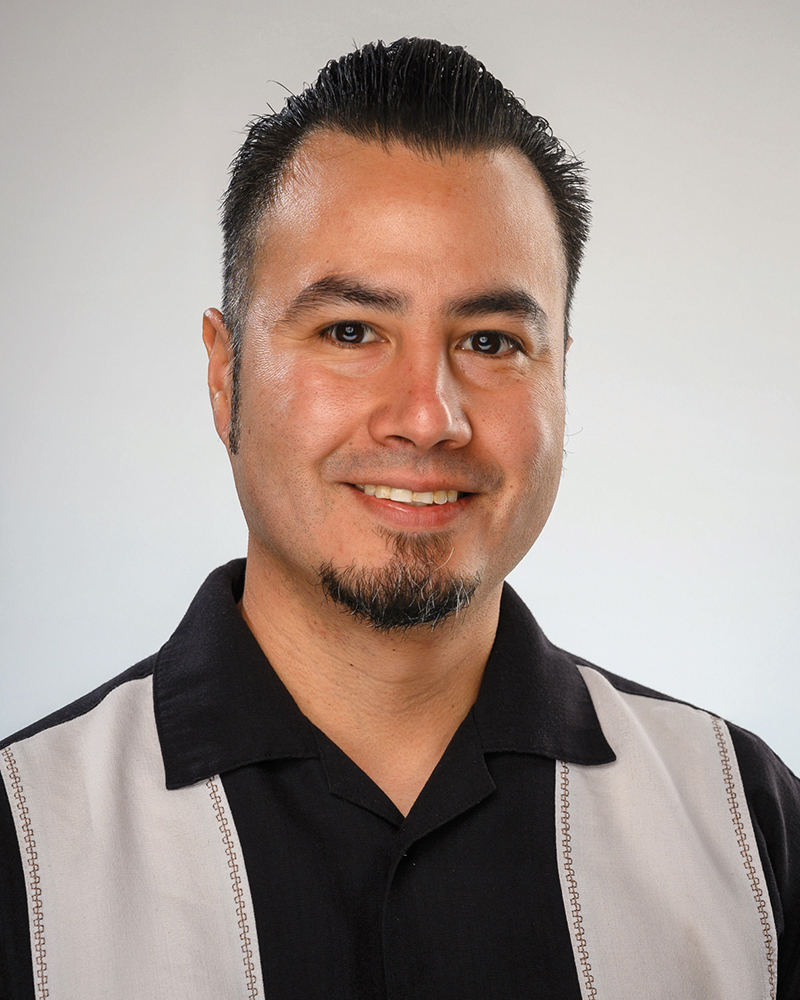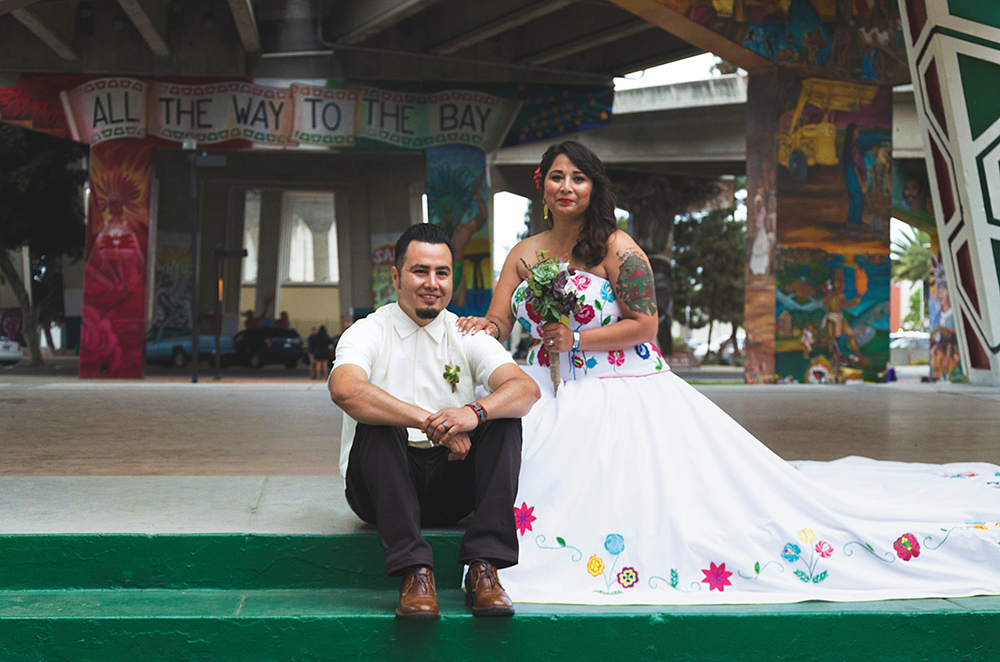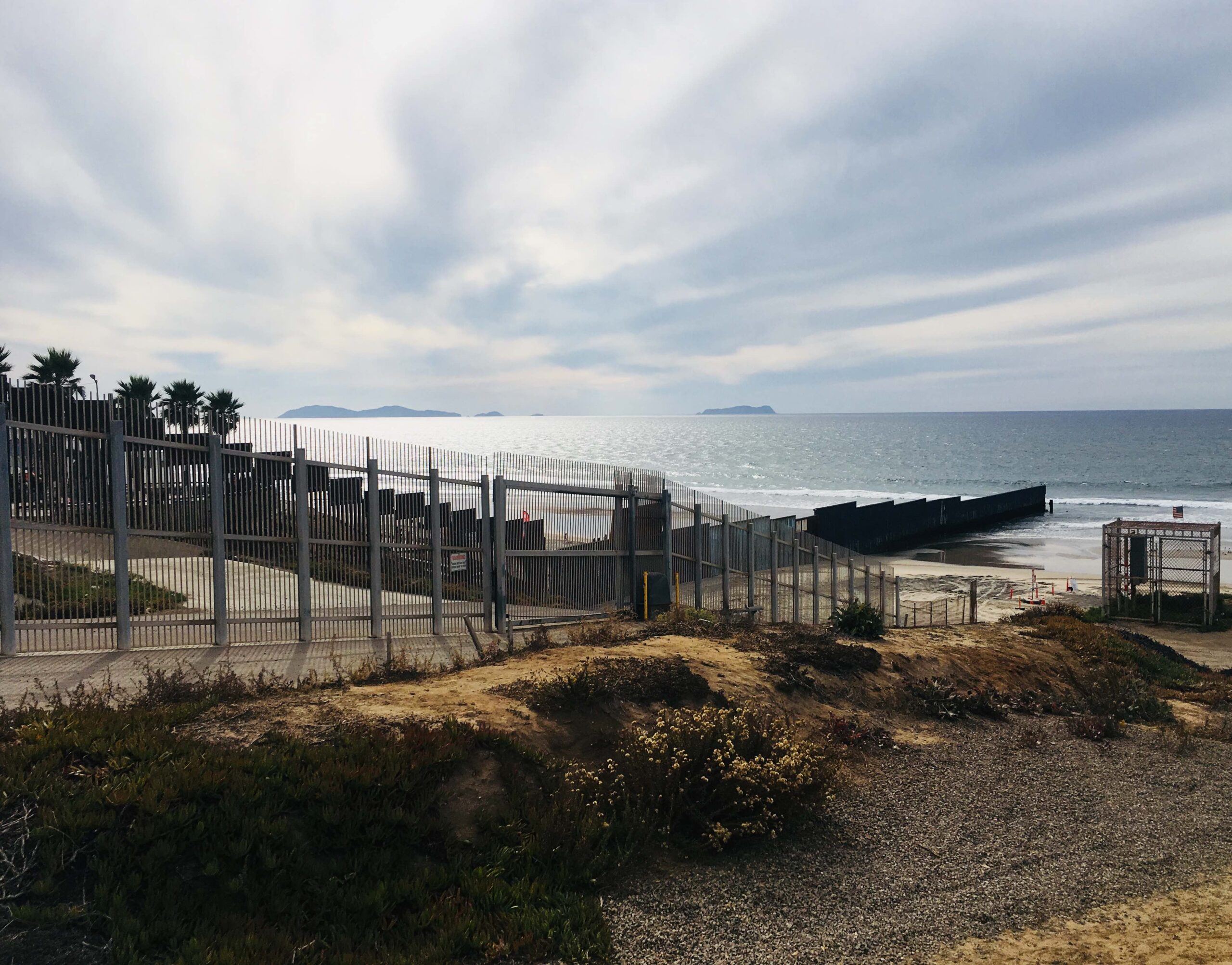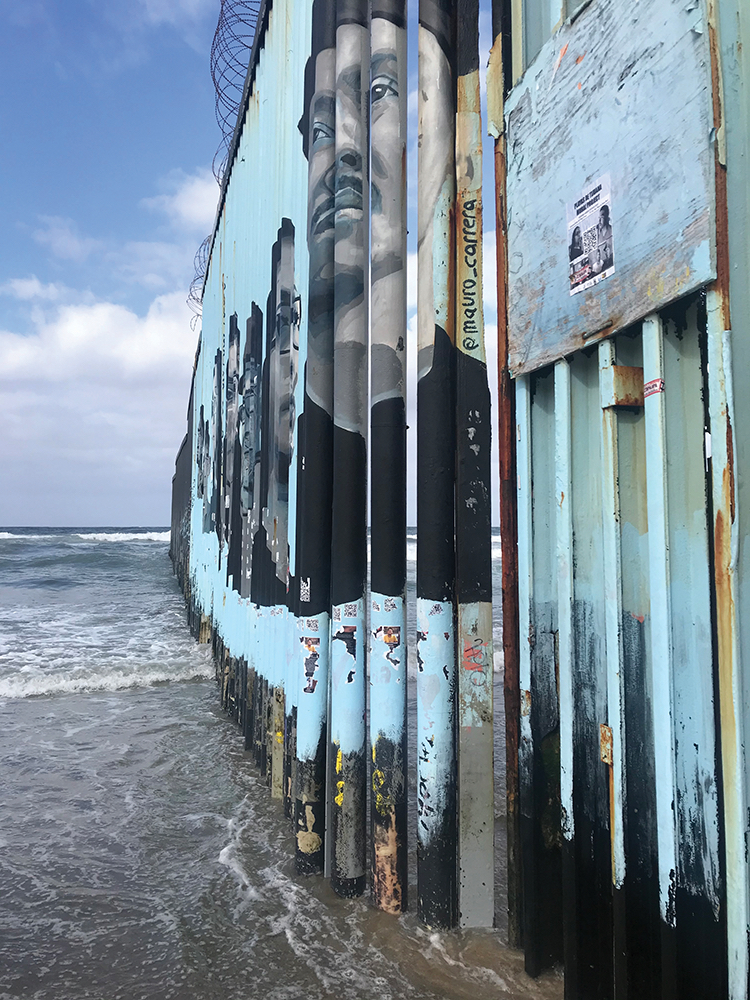DR. MANUEL (MANNY) G. GALAVIZ will join the Division of Cultural Anthropology at California State University, Fullerton (CSUF), as a tenure-track assistant professor in fall 2021. Dr. Galaviz earned his PhD in Sociocultural Anthropology from The University of Texas at Austin in December 2020. His master’s degree is in Latin American Studies from the Teresa Lozano Long Institute of Latin American Studies (LLILAS). From 2019 to 2020, he lectured in the Department of Sociology at Chapman University. Dr. Galaviz is a board member of LibroMobile Arts Co-operative & Bookstore in Santa Ana, California, and host and editor of LM Voices’ Scholar Holler Podcast. Galaviz corresponded via e-mail with Portal editor Susanna Sharpe for this interview.
WHERE WERE YOU BORN and where did you grow up?
I was born in Guadalajara, Mexico, and for the first four years of my life I lived in San Agustín, Jalisco. When I was four, my family migrated to Southern California. Ultimately, we ended up living in the small town of Ramona, California, high up in the mountains of rural North County San Diego. Ramona is where I attended school, graduated high school, and lived into my mid-twenties. My family still lives there, including my baby nephew, who was born the same week I accepted the CSUF faculty position.
As a first-generation scholar as well as an immigrant, you have spoken about the obstacles facing you and others like you in the world of higher education. When did you first realize that you wanted to go to college, and then grad school?
Growing up, I had no personal connections or access to anyone (outside of schoolteachers) who had earned a college degree. My father and mother didn’t have access to an education beyond Mexican primary schooling, yet they often encouraged me to go to college. After all, my parents migrated to the U.S. so we could have access to the opportunities that had not been available to them in Mexico. As working-class undocumented immigrants, my parents didn’t really know what college was, what it required, nor how to enroll or thrive in such an environment. Complicating matters was the fact that I too was undocumented. In the late 1990s there was no Deferred Action for Childhood Arrivals (DACA) or AB 540 program.* Furthermore, my high school guidance counselors were not equipped to mentor undocumented students. So, rather than taking advanced placement or college prep classes in high school, I was encouraged to take vocational courses like auto body repair, welding, and construction technology. From early on, I was made to believe that college was not a viable option for me.

Fortunately, my family and I were granted U.S. residency in September 2001, the same year I graduated high school. Soon after receiving “legal residency,” I enrolled in community college, but I placed in the lowest mathematics and English classes available. I had to catch up to actual college-credit courses, which took me over three years. In that time, I grew frustrated with myself. I was also in my early twenties and foolishly wanted material things like a new car. I ended up getting in debt by buying a new car. To pay for it, I had to start working construction, hanging drywall. So, I was installing drywall between 2004 and early 2009. Although I was technically enrolled in community college, I was not fully invested in completing my undergraduate degree—I was just working.
The rather unfortunate economic recession that forced thousands to lose their homes in 2008, allowed me to return to college as a full-time student. I was laid off from my construction job in January 2009. Around the same time, my mother completed her secundaria (equivalent to middle school) education through a program sponsored by the Mexican Consulate. She invited me to be her padrino at her graduation ceremony. I was overwhelmed with joy and pride at my mother’s achievement. Her dedication in advancing her schooling further inspired me to return to community college and ultimately transfer.
By 2010, I completed all the requirements to transfer into a bachelor’s degree–granting institution. I graduated with departmental honors from California State University, San Bernardino (CSUSB), with my bachelor of arts degree in Anthropology in June 2012. At CSUSB, I became aware of graduate school. I met Dr. Kathy Nadeau, who eventually became my mentor and undergraduate thesis supervisor. She was the first professor who encouraged me to conduct original research. Under her guidance, I produced my undergraduate thesis, an ethnography titled “Chicano Park and the Chicano Park Steering Committee: History, Myth, and Identity.” My undergraduate research project ultimately led to much broader questions concerning Chicana/o/x cultural politics in the San Diego–Tijuana Transborder Region. I consider myself rather fortunate to have been able to answer those questions in my 2015 LLILAS master’s thesis and later in my 2020 Anthropology dissertation.
What sorts of people and factors encouraged you? Discouraged you?
While programs like DACA and AB 540 are not perfect, they are of paramount importance because they offer some hope and opportunities for many undocumented youths. I strongly believe that my high school guidance counselors where ill-equipped in the late 1990s to deal with undocumented students interested in pursuing college. My guidance counselor’s ineffectiveness discouraged me from even trying to do well in my academic course work. Instead, I put all my energy into the vocational training, as attending college was something that I could not envision. In retrospect, my greatest discouragement to pursue a college degree early on came from myself, by believing that I was only capable of manual labor and nothing else.

My perspective and vision for myself changed years later. Encouraged by the realization that as a Mexican American and formerly undocumented construction worker I was disposable to the industry, as well as by my mother’s graduation ceremony, I made the conscious decision to return to college full time. I have not regretted that decision. I have learned much about myself and the world. I have also met fascinating, intelligent, beautiful people, among them my wife, who has only offered the utmost support, love, and encouragement.
Please describe your latest interests and plans for future writing and research.
My dissertation examined space and mobility in the militarized California-Mexican borderlands. Along with my experience as a construction worker, this led me to my latest research on displacement, alienation, and the labor of undocumented migrants living and working in gentrifying cities, like Santa Ana, California. I am in the process of developing an ethnographic project that will examine gentrification through the lens and use of undocumented labor, specifically drywalleros (drywall hangers/installers). While I am thrilled to start my new research, I also plan to revise, edit, and convert dissertation chapters into articles for publication.

You have said that your scholarship and your upbringing are intertwined.
On New Year’s Eve 1987, I became undocumented. I was four years old. My uncle, who was 16 at the time, carried me while he and my mother crossed clandestinely through the hills west of the San Ysidro Port of Entry into the United States. I grew up hearing my border-crossing story. To this very day, my uncle calls to remind me of how long it has been since we crossed. I would also hear other stories of places where relatives or friends had been deported because they came across a Border Patrol agent. Those were place-based stories that told me and my family of specific locations that presented a potential risk of deportation. In graduate school, and with the guidance of Professor Martha Menchaca, I was able to advance questions on the politics of space, access, and mobility that built on my lived experience as an undocumented youth in the California-Mexican borderlands. Through my doctoral research, I was able to better understand myself, why my family had to migrate to the U.S. in the first place, and how we negotiated our spatial mobility in the border and military city of San Diego, California. So, indeed, my scholarship is deeply intertwined with my former undocumented social position in the United States.
You are part of ARCUS Leadership, an organization that supports cultural heritage and historic preservation.
After completing my master’s degree, I interned with the National Park Service’s National Historic Landmarks Program, supported by the Latino Heritage Internship Program (LHIP) and Hispanic Access Foundation. My knowledge of the social history of San Diego’s Chicano Park positioned me to co-author the park’s nomination for National Historic Landmark status. In 2016, Chicano Park became a National Historic Landmark. Having played a significant role in Chicano Park’s landmark designation, I began to consult on Latinx historic preservation efforts, particularly on sites threatened by gentrification. Yet the trauma of having been undocumented has not escaped me. I often feel like an imposter, so I decided to apply to the ARCUS Leadership Fellowship in hopes of gaining more training in the field of historic preservation. ARCUS has taught me practical skills in interpreting and advocating for Black, Indigenous, people of color (BIPOC) historic places, and this work has affirmed that, indeed, I am a preservationist.

You are host of Scholar Holler Podcast, in which you interview first-generation scholars about the experience of pursuing graduate degrees. How did the idea for the podcast come about, and what have you learned through producing and hosting it?
The idea for the podcast came about from my cousin asking me for a letter of recommendation to support his application for a plant biology master’s program. The problem was that I am related to him and I know nothing about plant biology, so I had to explain how I was not the ideal person to write a letter on his behalf. Weeks later, a similar situation happened, this time with the daughter of a friend. My friend’s daughter was unable to secure all her letters of recommendation for a doctoral program, so she asked me. Again, I was not the ideal person to write a letter of support on her behalf. Responding to both those situations, and broadly inspired by the pandemic—it seemed like everyone was podcasting during the stay-at-home mandates—my wife and I decided to produce a podcast especially tailored for first-generation working-class undergraduate students as part of LibroMobile Arts Co-op’s many community-based programs. LibroMobile was able to connect me to a tech-savvy youth who handles the technological production of Scholar Holler Podcast, while I do the recordings and some editing, as well as selecting the themes and guests for each episode. Having completed the first season of Scholar Holler Podcast, I realized that editing audio is extremely soothing, but more importantly, I realized that first-gen scholars and future scholars are not alone—there is a thriving community of us out there!
What can students of Dr. Galaviz expect this coming fall?
In the fall, I teach Introduction to Cultural Anthropology, and an advanced undergraduate seminar-style course, Globalization and Culture Change. For both courses, I am using books and texts written by minoritized scholars or that focus on the local region. In spring 2022, I am teaching Anthropology and Religion, and I plan to assign Jonathan Calvillo’s The Saints of Santa Ana, an ethnography of race, ethnicity, and religion in Santa Ana, California. As a Latinx Chicano professor, I am committed to advancing racial justice in all its intersectional forms in my scholarship and teaching. That is what my students can expect.
Any final remarks?
I would like to thank LLILAS Benson for all the support throughout the years. Although my PhD is in Anthropology, LLILAS Benson is where I felt most at home. It is where I realized I was a scholar and gained the confidence to pursue my PhD. The staff, faculty, and the students always made me feel welcomed. Honestly, UT would not be UT if it were not for LLILAS Benson.
*AB 540, signed into law in October 2001, authorized undocumented students to pay in-state tuition at public colleges and universities in California, provided they met certain criteria.
